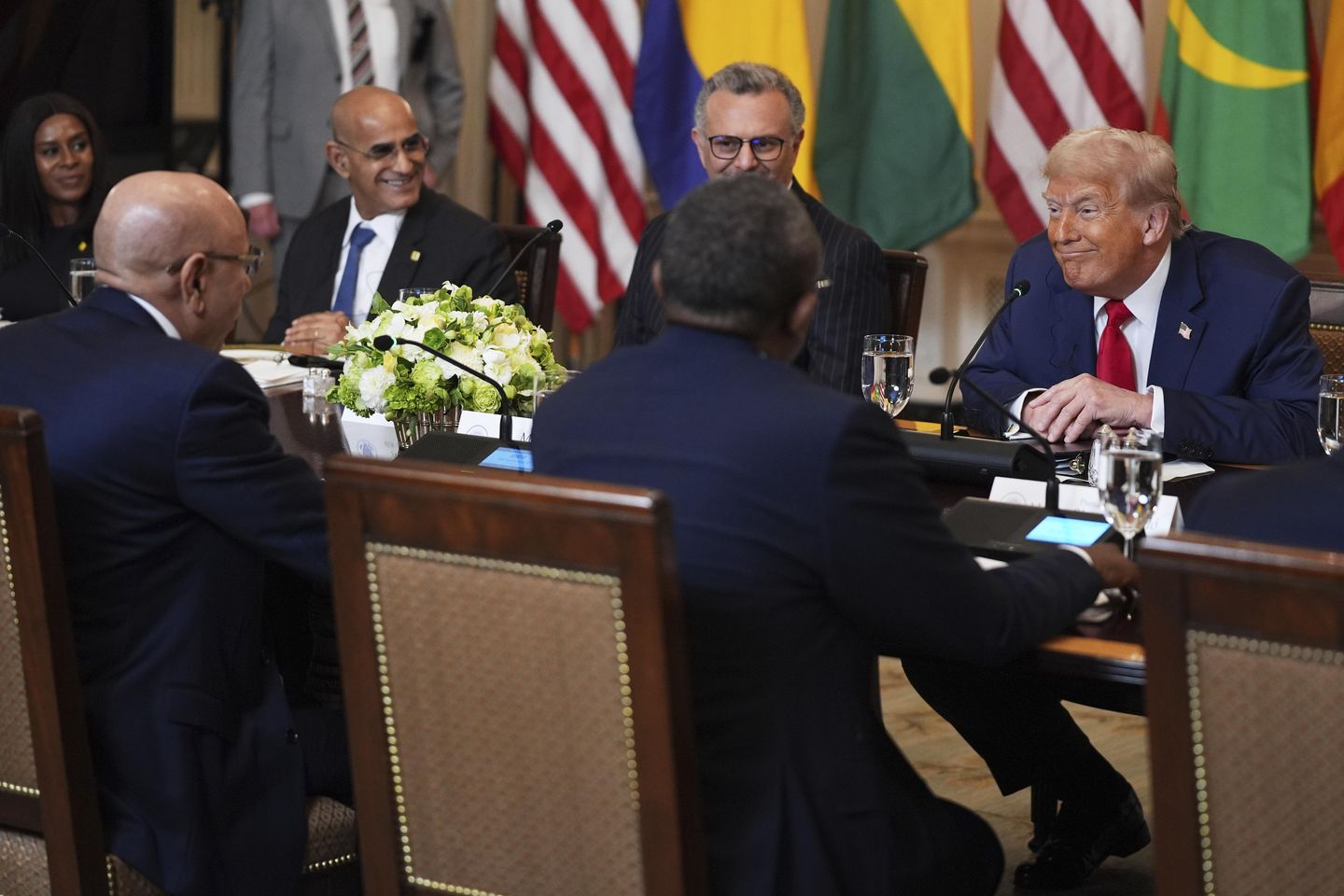
President Trump told the leaders of five African nations on Wednesday that he wants to rebuild relationships with their countries that are based more on trade and less on U.S. aid.
The president sat down with the African leaders at the White House as he seeks to bolster economic ties between the U.S. and the continent, which is poised for explosive growth over the next decade.
Mr. Trump held a working lunch with the presidents of Mauritania, Guinea-Bissau, Liberia, Senegal and Gabon for a conversation centered around “commercial opportunities.”
He said there was “great economic potential in Africa,” adding that his administration was “working tirelessly to forge new economic opportunities involving both the United States and many African nations.”
But Mr. Trump also expressed a desire to move away from the U.S. providing aid to African nations and, instead, increase trade.
“In many ways, in the long run, this will be far more effective and sustainable and beneficial than anything else that we could be doing together,” he told them.
Several of the African leaders pitched their nations as an opportunity for American investment, ranging from tourism, critical minerals and other ways in which the U.S. could expand its economic ties to the region.
Senegalese President Bassirou Diomaye Faye offered the idea of building a golf course in Senegal that would attract avid golfers, adding that it was a six-hour flight from New York or Miami. He praised Mr. Trump’s golf skills and told him, “golf requires concentration and precision, perhaps an investment could be made in a golf course in Senegal.”
“As you’ve seen, you can only do business when there is peace and security and you build peace everywhere in the world,” he told Mr. Trump.
The meeting took place amid a lot of developments in Africa.
Last month, the Trump administration brokered a peace deal between the Democratic Republic of Congo and Rwanda, which is widely viewed as a prelude to a rare earth minerals deal for the U.S. Mr. Trump has been eyeing critical resources in the region, such as Gabon’s manganese and uranium.
China is Africa’s top trade and investment partner, with Russia just behind it. Also, China has been expanding its footprint in Africa, with rumors swirling that Beijing is scouting port locations along Africa’s West Coast for potential military use.
The U.S. military, meanwhile, has significantly reduced its presence in the region. Since 2020, U.S. troops have been pushed out by the leaders in Burkina Faso, Mali and Niger, all of which have turned to Russia for security support.
The Trump administration earlier this year dissolved the U.S. Agency for International Development, which provided American aid to poorer African countries. In slashing the agency, the administration said it was shifting from a “charity-based foreign aid model” to one of partnerships with nations that show “both the ability and willingness to help themselves.”
Liberia, whose president attended lunch with Mr. Trump on Wednesday, was hit hard by the reduction in U.S. foreign assistance. The cuts forced health centers to shut down and resulted in critical shortages in HIV medication and contraceptives.
U.S. support had made up nearly 3% of Liberia’s national income – the highest of any country – according to data from the Center for Global Development.












